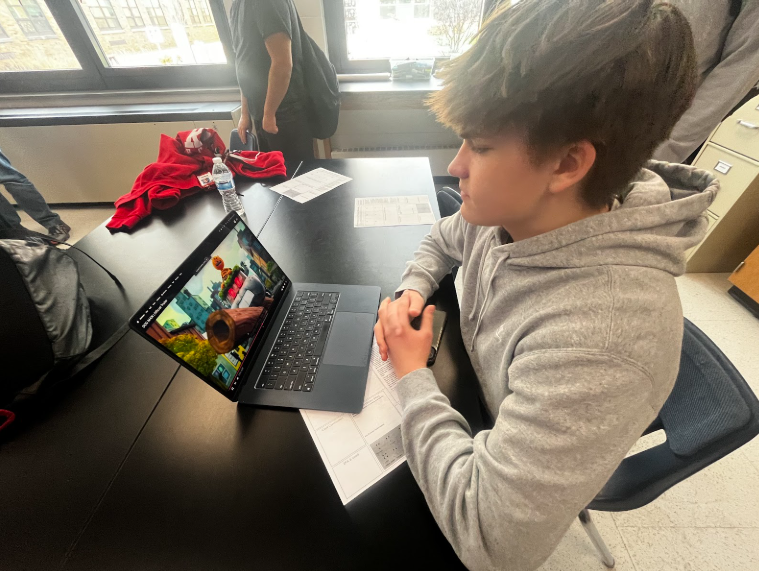Finally, the always-vigilant Central administrators relented and created a new cell phone policy that coincides with popular opinion. However, what should have been a celebratory event resulted in immense confusion. Most of Central students found out about the policy change from word of mouth and not on page 31 of the student handbook. Evidently, administrators are out of touch with Central reality if they think students read the rules of the student handbook. To put it bluntly, no one does.
So, we will read it for you. The student hand book says, “Acceptable use of [cell phones] is limited to non-instructional time: cafeteria, hallways during passing periods, and study halls.”
In simple terms, during non-instructional times, students are allowed to text or send their fellow classmates just about anything except nude pictures. That’s right, the all-but-subtle sexting clause says, “Sending receiving or possessing sexually explicit or otherwise inappropriate pictures or images, commonly known as ‘sexting’ is prohibited. Students violating this policy will be subject to disciplinary action.”
While the policy might be a good thing in disguise, the orchestration of the policy possesses many flaws. For one, the failure of a formal announcement brings much confusion about the rules and repercussions.
Kevin Chval, senior, said, “I think that it was not a wise decision not to make a formal announcement because the words of the handbook are left up the interpretation by the students. For example, in the handbook, it says cell phones may be used during non-instructional times. This is interpreted by me and as well as many other students, as when the teacher is not speaking.”
Mrs. Kim Dever, director of deans, feels that there is no reason that Central students would not have been informed of the policy change and its new rules since it is listed in the student handbook as well as in an Eblast. “We weren’t going to jump on the microphone and say, ‘Hey! Students can use their cell phones now!”’ Mrs. Dever said.
Adding to the confusion, the new policy gives every teacher the authority to adjust the rules to fit his or her classroom. “It is up to your teachers whether or not to allow cell phones in the classroom,” Mrs. Dever said. This makes no sense. Regardless of awareness of the handbook rules, students must now juggle the different policies of each of their teachers.
Mrs. Jennifer Graham, social studies teacher, feels that there is no reason for the use of cell phones in her classroom. “There is no reason for students to use cell phones in the classroom, and I have already given two detentions to students texting,” Mrs. Graham said.
So, although a student is prohibited from using his or her cellphone during Mrs. Graham’s class, the next teacher may have a completely different policy and attitude. Mr. Alex Hipskind, social studies teacher, encourages his students to actively use their cell phones in designated class times.
“As a civics course [Constitutional Law] I am trying to encourage students to find contemporary stories or issues using their iPhones for the first few minutes of class. After being a teacher for 19 years, the source of information is no longer the newspaper but the iPhone and internet technology,” Mr. Hipskind said.
The school’s goal is always to improve student achievement, and in the end, though the communication about the policy change was poor, we can’t argue that this policy affects student achievement. For now, all it has done is to create a large grey area and the opportunity to text mom or dad to bring a forgotten lunch.










